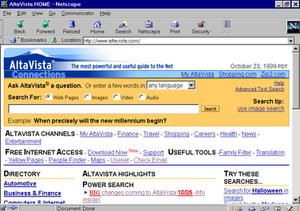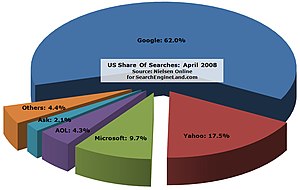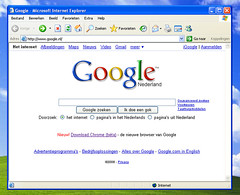By Carl Weiss
| Black-chinned Hummingbird -- Moab, Utah, USA (Photo credit: Wikipedia) |
You may have heard that Google
recently released its latest algorithm update named Hummingbird . This new algorithm hasn’t brought any smiles
to advertisers faces. I haven’t seen anyone singing (or humming) Google’s
praises since they announced the change. What I find interesting is that Google
always seems to name its updates after cute little animals like pandas, penguins
and now a hummingbird. Meanwhile their effect
on many websites is more like being attacked by lions and tigers. That being said, what I have brought you today
is a cold, hard look at when, why and how search engines of all kinds insist on
playing games with all website owners and what you can do to keep ahead of changes
that can leave you in the darkest regions of cyberspace.
How Did it All Start?
Having worked the web professionally
since 1995, I have seen a lot of changes over the past 18 years. Back in the beginning, all you needed to get on
page one of any search engine was a website.
This was in the days before blogs and social networks, before online video
too, since there wasn't enough bandwidth to stream video. Search engine algorithms were pretty simple back
then too. In fact one of the easiest ways
to get on page one in the 90’s was to research sites already on page one, since
their code could be dissected and bested.
In fact, this is one of the reasons that virtually
 |
| Courtesy of |
Of course, so could the webmasters
of the search engines. So they decided to
up the ante by having owners begin soliciting backlinks, figuring that this was
one way of showing the popularity of a website.
Within six months of this edict, entrepreneurs started spawning backlink
farms where any site owner could acquire hundreds or even thousands of backlinks
overnight. This rankled the powers that be
at the search engines since their spiders were not yet intelligent enough
| AltaVista (Photo credit: Wikipedia) |
Bear in mind that before Google
came onto the scene there were dozens of search engines that could provide viable
traffic to business owners. Even though there
were a number of well entrenched operators, no one yet held anything like a monopoly. What this meant is that if your site didn’t fare
well on one search engine, you could always move your operation to another, many
of which could be cracked in 24 hours. Once
the 800 lb gorilla in the room called Google went public, the game was changed and
not for the better.
| English: a chart to describe the search engine market (Photo credit: Wikipedia) |
Top Search Engine Shares in 1999
AltaVista:
15.5%
HotBot:
11.3%
MSN
Search: 8.5%
Yahoo: 7.4%
Excite:
5.6%
Lycos: 2.5%
Lycos: 2.5%
Google Gains Dominance
On August 19, 2004 Google went
public. By July of 2005, its market share
had grown to 30.5 percent of search . A year
after that, it control raised to 41.4 percent of search . By 2010 Google controlled 71 percent of search ,
Yahoo controlled less than 15 percent and Bing came in third
| Google Chrome (Photo credit: |
How to Make Google Happy?
What Google wants today is content
and lots of it. Today it isn't enough to
have links to your blogs, videos and social sites on your homepage. Now you are actually expected to feed them regularly.
In a blog entitled, “What Hummingbird
Means for Small Business SEO,” searchenginewatch.com posted:
“Websites can't grow their
entrance pages without introducing new content regularly. While hard to believe,
there are many webmasters who don't update their websites, have no blog, and refuse
any assistance. While introducing new pages
of helpful, high-quality content is a great start, Webmasters and small business owners need
to be very creative to be noticed.
·
Utilize staff to promote in social media.”
Worst of all for many website
owners was the fact that Hummingbird was launched as a kind of sneak attack, with
Google dropping the bomb without warning taking many website owners by surprise.
Newswire.net reported that,
“In
the past, Google’s Panda and Penguin updates have struck fear in the hearts of SEOs
as they watched their clients’ rankings plummet. While Panda and Penguin affected
1% or 2% and still caused panic, this new update is reported to affect the majority
of search results and no one noticed until the announcement was made a month later. The last Google update that replaced this much
of the search engine was in 2010 with the ‘Caffeine’ update. Caffeine introduced
the ‘live search’ and keyword suggestion tools, and many people seem to have forgotten
the huge emphasis that it placed on social signals. This new update is possibly
even more dramatic since it appears Google now understands the intentions of the
words carried in these social signals.” http://www.newswire.net/newsroom/pr/00077509-google-hummingbird-favors-human-speech.html
.jpg) In the last two years, my
partner and I have written no less than 20 articles covering the constant
changes that Google and other search engines keep initiating. We often see the
devastated looks on
In the last two years, my
partner and I have written no less than 20 articles covering the constant
changes that Google and other search engines keep initiating. We often see the
devastated looks on
Here's the List
- Team Tech! The Next Wave in Internet Marketing
- How to Make Google your Best Friend
- Google’s Secret Ranking system - Harder for you, more profits for them.
- Your Website - Lost in Cyberspace
- The Care and Feeding of the 800 Lb Gorilla in the Room Named Google
- The Evolution of Internet Advertising
- Holy Algorithm, Batman, the Penguin Strikes Back!
What it boils down to is that
Google is only going to give high ranking to websites that provide a complete multi-media
experience to visitors. This means the age
of “set it and forget it” websites is at an end. Using trickery to garner
a high position is no longer going to be possible. It also means that what was traditionally considered
to be SEO-friendly will become as obsolete as many of the search engines that used
to rule cyberspace. (AltaVista, the titan
of the search engine world back in 1999 went dark for good in 2010 after seeing
its share of the market reduced to two tenths of one percent.)
So if you don’t want to wind
up relegated to the bone heap online, you need to create a corporate culture that
is designed to feed a world wide web that is hungry for content, before Google’s
next cute critter decides to take a bite out of your web presence.
If you found this article useful, share it with your friends, families and co-works. If you have a comment related to this article, leave it in the comment sections below. If you would like a free copy of our book, "Internet Marketing Tips for the 21st Century", fill out the form below.
Thanks for sharing your time with me.
If you found this article useful, share it with your friends, families and co-works. If you have a comment related to this article, leave it in the comment sections below. If you would like a free copy of our book, "Internet Marketing Tips for the 21st Century", fill out the form below.
Thanks for sharing your time with me.
Since 1995, Carl Weiss has been helping clients succeed
online. He owns and operates several online marketing businesses,
including Working the Web to
Win and Jacksonville
Video Production. He also co-hosts the weekly radio show, "Working the Web to Win,"
every Tuesday at 4 p.m. Eastern on BlogTalkRadio.com.
Related articles















Keeping up with all Google's antics is a full time job!
ReplyDeleteThe problem with trying to please the search engines is that every time you think you have a bead on what works they change the rules. I'm sure glad they don't play poker that way.
ReplyDelete